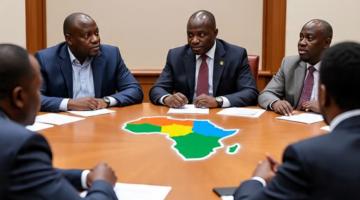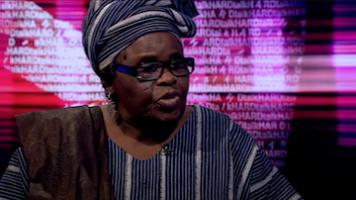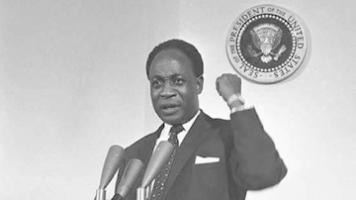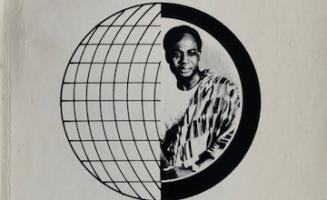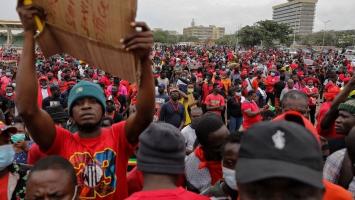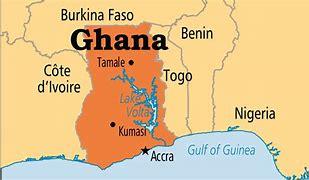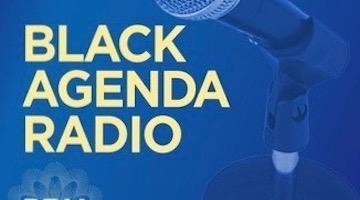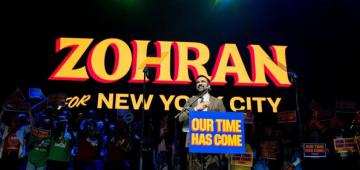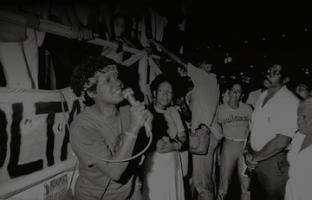Remembering the anti-imperialist and Pan-Africanist politics of the late Ghanaian writer, Ama Ata Aidoo.
We are losing our elders much too quickly. The indomitable Ama Ata Aidoo, Ghanaian feminist, writer, poet, playwright, critic, and academic joined the ancestors last week, on May 31, 2023. Born in 1942 in the town of Abeadzi Kyiakor, located in Saltpond in the Central Region of Ghana (then known by the colonial name, “Gold Coast”), Aidoo began writing at the age of 15, winning a newspaper short story competition in the process. She would go on to receive a Bachelor’s degree in English from the University of Ghana, Legon. She then served as professor at the University of Cape Coast (Ghana) for many years, and later served as minister of education for the Ghanaian government in the early 1980s. One of the most recognized African women writers of her generation, Aidoo was one of the last of the post-independence cohort of women and men of letters.
Aidoo has received a resounding send off by the media throughout Africa and in the west. Tributes rightly celebrate not only Aidoo’s numerous works, but her feminist orientation in the commitment to elucidating the social and political condition of African women. However, western white feminists, especially, were keen on focusing on Aidoo’s feminism to the exclusion of almost everything else.
Less discussed was Aidoo’s staunch nationalism and Pan-Africanism - and her critiques of European use and abuse of Africans. In an interview published in a 1990 edited volume on African women writers, Aidoo responded to a question about whether she saw herself both as a writer, a woman, and someone from the Third World, with: “I…find my commitment as an African, the need for me to be an African nationalist, to be a little more pressing. It seems that there are things relating to our world, as African people, which are of a more throbbing nature in an immediate.” And in a video described as her “explosive interview on imperialism that went viral,” Ama exasperatedly explains to the white interviewer the extractive and genocidal role of Europeans in Africa:
Since we met you people 500 years ago, look at us. We’ve given everything. You are still taking…It’s true. I mean where will the whole Western world be without Africa? Our cocoa, our timber, our gold, our diamonds, our platinum, etc.. Everything you have is us….It’s a fact. And in return for all this, what have we got? Nothing. Anti-personal indoctrination against ourselves. If you go and cook your horrible diseases like AIDS, you say it is us. You brought us tuberculosis….In exchange for Africa giving Europe - the western world - 500 solid years of our people, our human beings, to work your cane [field], to dig your gold…in exchange for that we get nothing. Nothing. And the white folk look upon us like monkeys…
We celebrate the life of Ama Ata Aidoo by recalling her staunch advocacy of African/Black peoples and her poignant critiques of European white supremacy, by reprinting a short and little known commentary on the dubious representation of African oral literature by a Euro-American anthropologist. Not only does Aidoo challenge the discipline of anthropology for its scholarship on Africans, but she also questions the notion that African art and oral history are not “art” because they are seen by Europeans as only “functional.” Aidoo ends by rebuking the anthropologist, telling him to “find out from Africa…what actually operates in the process of the creation or transmission of oral literature.”
Story-telling in an African village
Ama Ata Aidoo
It would not be an exaggeration to say that nearly all the collectors who have reduced African oral literature to written material were Euro-American anthropologists. And this does not imply a censure. Indeed as a white missionary friend would put it, “If they had not done it, who would?”
However one wonders when the traditional literature of this continent would be considered as literature rather than supplementary anthropological data? I want to have an answer to my question because I consider rather strange the following comment from Dr Lienhardt [Peter Lienhardt, British social anthropologist], in the discussion on the African oral tradition in the July issue [of New African]:
There is not one good and convincing account from my reading, of adults sitting together in an African village, telling one another stories for entertainment. Not one! And if one were found, it would be most valuable to have. This material simply has not been collected, I imagine, but on the whole people have copied earlier ideas that the English and the Irish had about their own folklore and referred it, to some extent, to Africa, and I have never seen a group of adult villagers solemnly sitting down to amuse one another with folk tales. They may have done so of course, fifty years ago.
What is he implying? What does he want to be told? At any rate, I have a feeling that one would have to know what the discussion was about in order to understand the points he tried to make.
For instance, what meanings does he want to give to the word "professional" in the context of oral literature. What category of a professional entertainer does Dr Lienhardt know in Nigeria? What others has he come across both in his field work and in his reading? Does the use of this word in the discussion have anything to do with functional and non-functional art? In which case I was right to detect an implication in his remarks that the African folk tale may be inferior to the Celtic-Anglo-Saxon tradition because the former is functional and the latter was not? Assuming this premise is correct, may I ask Dr Lienhardt if for art to be good it should of a necessity be non-functional? Or does "professional" here mean one who is able to tell or sell a story on demand? If it is, then Dr Lienhardt is talking of the informant. Or, does" a professional" refer to one who has a more retentive memory and greater gifts for narration and therefore is more acclaimed as a story-teller? I know one such.
There is a village called Kyiakor near Saltpond in the Central Region of Ghana where I grew up. There, if you entered any compound between eight and twelve o'clock in the evening you might or might not come upon a group of women and children gathered either by a fire or just anywhere telling each other stories. Sometimes if you were lucky, you would not have to enter a house. On the market-place where they sold kerosene, oranges, and biscuits, men of all age groups told stories to each other. Anyone could tell a story because in these groups everyone performed the dual role of narrator-audience. As long as a man managed to come in first with his “you are lying", addressed to a narrator, he was able to take his turn at telling a tale. And the tension which nearly always built up towards the end of a story because of people's eagerness to speak contributed towards the fun. However I remember Papa Amoanyi best because he seemed then to know more stories than anyone else, and his stories seemed always to be the most involved and the most interesting. I also remember that he was the leader of a group and sometimes when there was a wake-keeping in town, the funeral-owners would go to him with a bottle of Akpeteshie (local gin) and ask him to bring his men. They would tell stories all night, and as the night wore on, the funeral owners would supply Papa Amoanyi and his group with more gin and cola nuts. These helped to keep them awake. To the best of my knowledge they were never paid. What is more, the group only about started the evening and what normally happened was that other people joined them not only to listen but to take up their turns at telling stories.
I know of other circumstances in which people solemnly told stories to amuse one another. For example there were cases of men who for periods in the year would leave the village with some members of their families and retire to homesteads in the woods to hunt either the grasscutter from their corn farms or the monkeys from the cocoa plantations. And more often than not these people would, in the evening, gather by their fires to tell stories. I participated in such gatherings when I was a child.
Now I would like to know from Dr Lienhardt what ideas about African oral literature have been confused with those the English and Irish had about their folklore. I should have thought that it would be easier in a period like this to find out from Africa (since she offers the opportunity to interested parties) what actually operates in the process of the creation or transmission of oral literature.
Ama Ata Aidoo, “Story-telling in an African Village,” New African, October, 1966.


